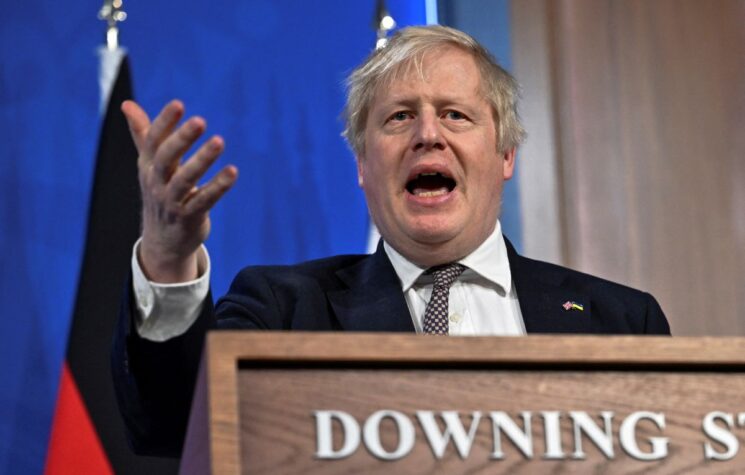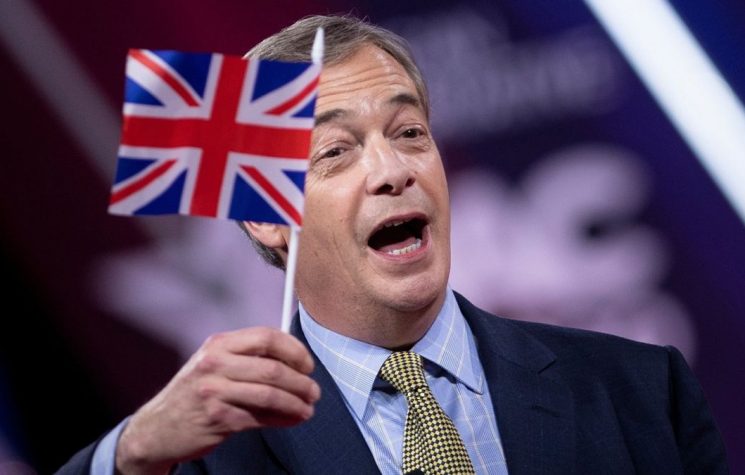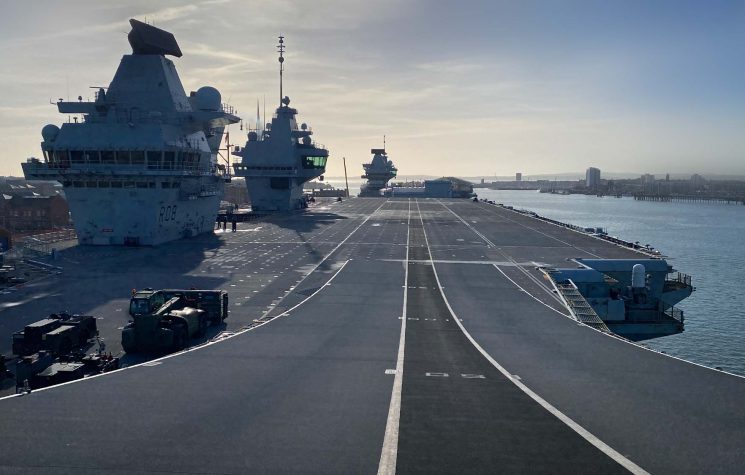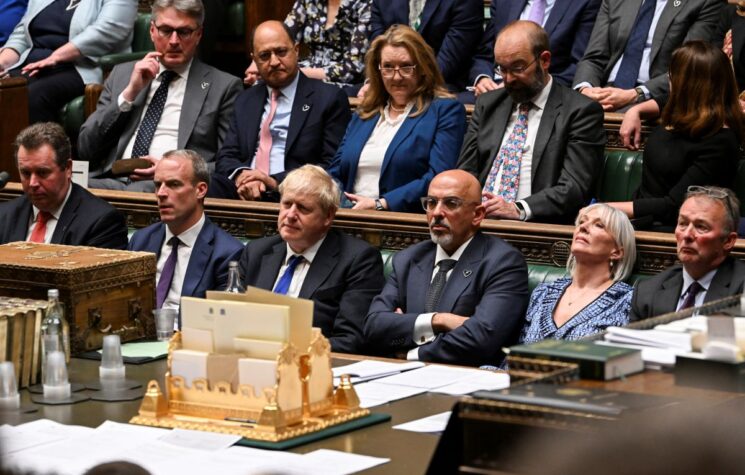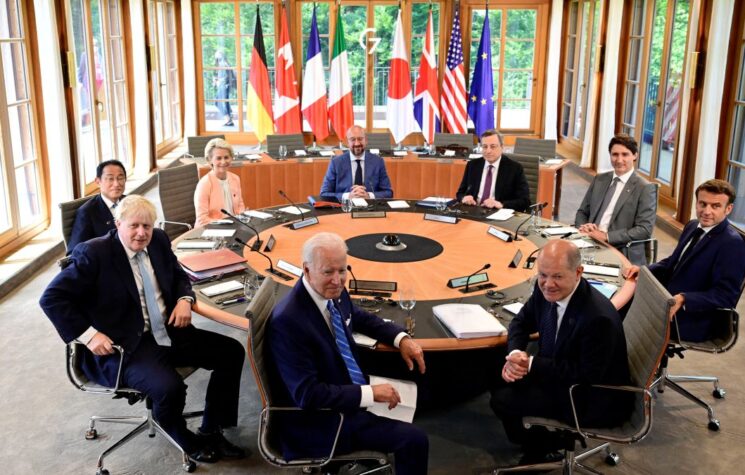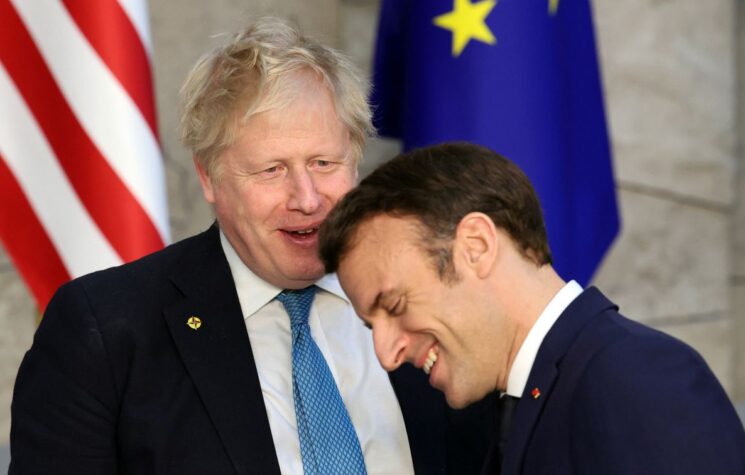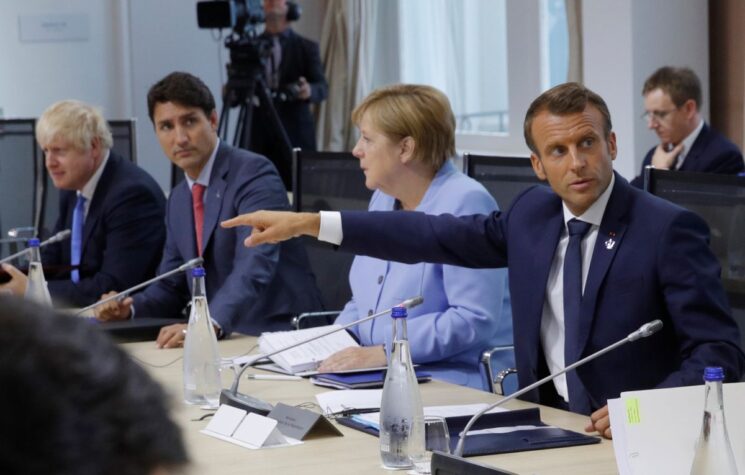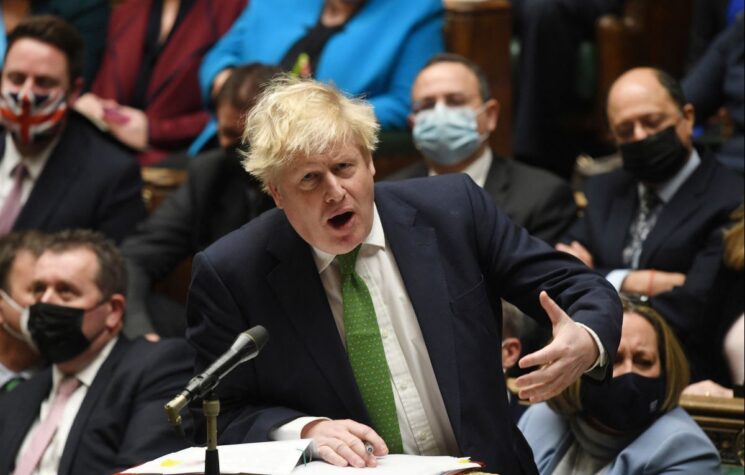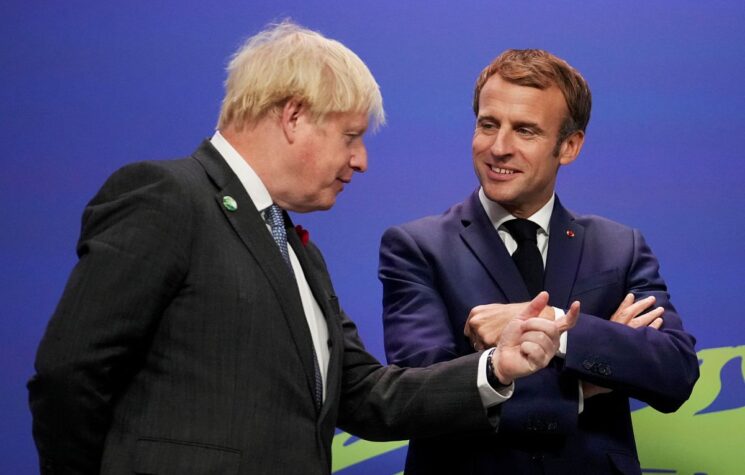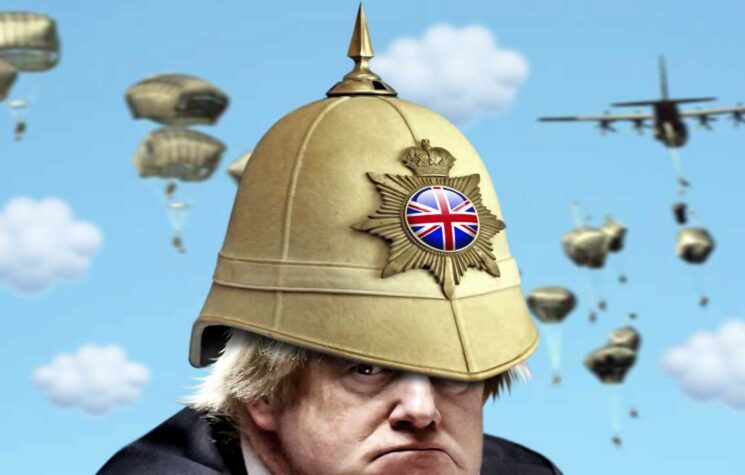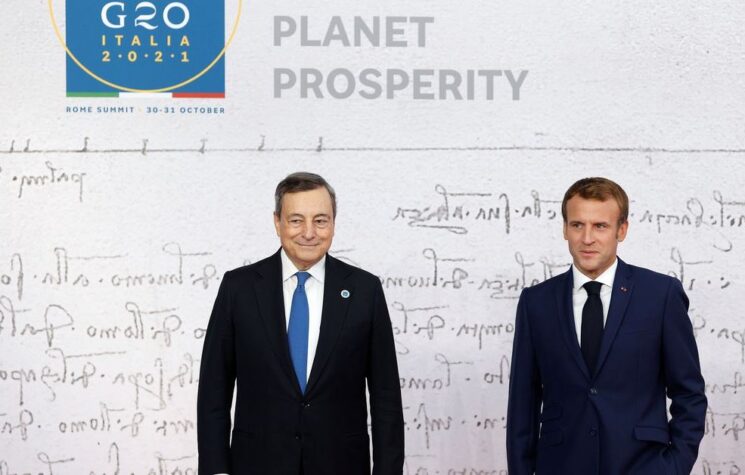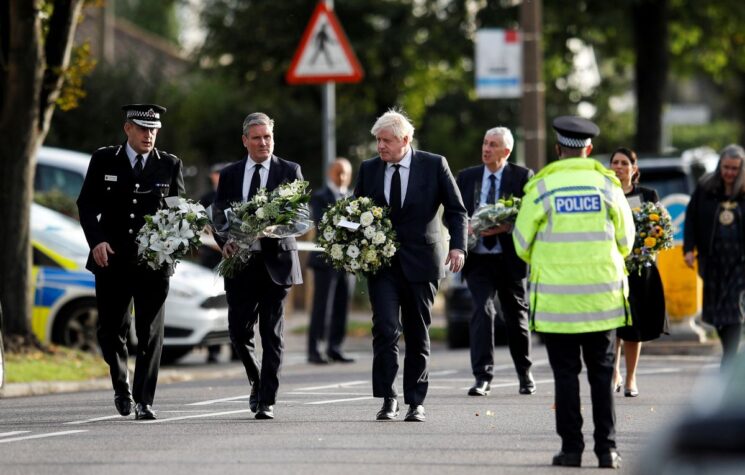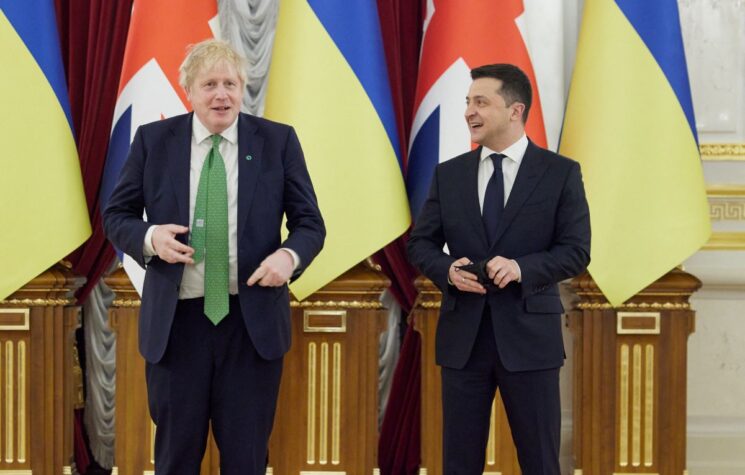Britain isn’t flourishing, and Johnson’s silly pretensions in that regard are only lowering the UK’s standing even further — all round the globe.
One of the slogans used during the campaign for Britain to leave the European Union — the Brexit operation — was “take back control”, by which Prime Minister Boris Johnson meant, as demonstrated in a speech of December 2016 when he was foreign minister, “taking back control of its democratic institutions.” But it was nonsense for him to say that as a member of the EU the United Kingdom did not have control of its governance, because although membership entailed abiding by EU regulations (to which Britain had agreed) there were no dramatic or harmful instances of crumbling democracy. It was just another slogan, but it appealed greatly to those many Brits who espouse nationalism to an unhealthy degree.
Johnson’s mishandling and misrepresentation of the Brexit process is indicative of his overall unsuitability to be leader of the country. As Patrick Cockburn pointed out on September 28, he is what Isaiah Berlin called a “charlatan” who deceives and manipulates all the time, being “a prime example of Berlin’s rare breed, who does just that with his boosterism, false promises and lying”.
A few days before Cockburn’s stinging commentary appeared, the British government website carried a piece of bureaucratically-produced gobbledygook titled “Global Britain: delivering on our international ambition” in which it was stated that “Global Britain is about reinvesting in our relationships, championing the rules-based international order and demonstrating that the UK is open, outward-looking and confident on the world stage” thus following Johnson’s declaration that “It is in the interests of global order that we are at the centre of a network of relationships and alliances that span the world. It is one of the great achievements of British diplomacy in the 20th century that — together with others — we effectively changed the basis and assumptions on which those relationships work.”
Concurrent with speeches and other harangues about “global Britain” the government in Westminster ordered a Royal Navy warship to sail through the Strait of Taiwan, continued to conduct military exercises with the HMS Queen Elizabeth Carrier Strike Group in the Pacific and Far Eastern waters, and had the country’s senior military commander, General Sir Nick Carter, give an interview to CBC News in which he said Britain wanted to “co-operate in terms of helping Canada do what Canada needs to do as an Arctic country” and that “we have military capabilities, certainly in the maritime domain and in terms of our science that would be useful to Canada and I think operating alongside Canada in that regard is going to be clearly good for both countries.”
None of these performances produced anything that can be regarded as even remotely positive or productive in economic or strategic terms. The naval deployments in the Far East have engendered only exasperation on the part of China which declared the Taiwan Strait frolic to be ridiculous, which it undoubtedly was. The UK’s defence ministry riposted that “The UK has a range of enduring security interests in the Indo-Pacific and many important bilateral defence relationships, this deployment is a sign of our commitment to regional security,” but it is difficult to see how a deliberate insult to Beijing can be considered a positive contribution to security.
The speech by General Carter was a follow-on from his declaration last December that the “posture for our armed forces also addresses state threats. The most serious of these in the Euro Atlantic area is of course Russia and we have seen recently that Moscow is determined to test Britain and our NATO allies. The Russian regime’s increasingly assertive activity is almost certainly influenced by problems at home.” In fact, Russia’s reactive policy has been taken in response to enlargement of the so-called “enhanced forward presence” adopted by the U.S.-Nato military alliance around Russia’s borders.
Britain’s global aspirations rely not only on absurd gestures like sending a warship to try to irritate China and trying to whip up anti-Russia enmity but also on the quaint notions, as noted by a contributor to Carnegie Europe, “that the UK really does have a special relationship with the United States and that Brexit would enhance prosperity at home and Britain’s influence abroad.”
The “special relationship” supposedly existing between the United Kingdom and the United States has not existed since 1956 when President Eisenhower refused to support Britain’s illegal invasion of Egypt to try to wrench back control of the Suez Canal. The outcome of the UK’s absurd fandango was crippling both economically and strategically, and the “special relationship” fantasy completely disappeared in the 1960s when Britain refused entreaties by President Johnson to contribute military forces to the U.S. war in Vietnam.
As winter approaches in the northern hemisphere the British prime minister has more to worry about than the dissolved “special relationship” because his country is fast approaching economic disaster, some of it caused by the pandemic, but largely stemming from the decision to quit the European Union. As the New York Times has noted, “Prime Minister Boris Johnson speaks of creating a more agile ‘Global Britain,’ with stronger ties to the United States and other democracies, like Australia, India and South Korea . . . But most benefits of a Global Britain so far remain theoretical. The Office for Budget Responsibility has said it expects little effect from new trade deals . . .” In starker terms, the United Kingdom is suffering severe problems of its own making. And in the middle of the plunge to crisis, the prime minister lowered the tone of international diplomacy in a most regrettable and undignified manner.
The NYT explains that “A British agreement alongside the United States in September to help Australia deploy nuclear submarines was hailed by Brexit supporters as a success for the new approach, especially because it upset an Australian defence deal with France.” This was not only a major international disagreement between ostensible allies, but was laughed about by Prime Minister Johnson who tried to make fun of the French President on September 23 by joking in French-English to reporters in Washington that “I just think it’s time for some of our dearest friends around the world to, you know, ‘prenez un grip’ about all this and ‘donnez-moi un break,’ because this is fundamentally a great step forward for global security.”
Not only did Johnson totally trivialise the international impact of a broken contract worth over forty billion dollars and alienate a long-standing and most important ally, but he destroyed the claim that he was aiming for a “Global Britain” by behaving immaturely and insultingly. At the time his country is suffering from extremely serious economic problems, Prime Minister Johnson wants to strut the world stage as a global statesman. But he is failing dismally and displaying a lack of leadership that could bring his country to its knees and cause enormous suffering.
In one telling disproof of the claim that leaving the European Union has had nothing but economic benefit for the United Kingdom, Johnson has had to agree to immigration of some 5,000 haulage drivers from Europe because the dearth of lorry drivers is disrupting the national economy. Further, as Reuters reported on October 1, “Britain’s pig farmers on Friday warned of a pork crisis unless the government urgently eased an acute shortage of abattoir workers and butchers that has left up to 150,000 pigs backed up on farms and facing a costly cull.” As known by most observers, the vast majority of these workers, like goods vehicle drivers and fruit-pickers and hospitality-industry staffs, came from mainland Europe and had to go back to their own countries when glorious Brexit was achieved.
Britain isn’t flourishing, to put it mildly, and Johnson’s silly pretensions in that regard are only lowering the UK’s standing even further — all round the globe. The best thing that British citizens could do is to take back control and get rid of this conceited lightweight, thereby encouraging movement to international diplomacy and development of economic cooperation.








